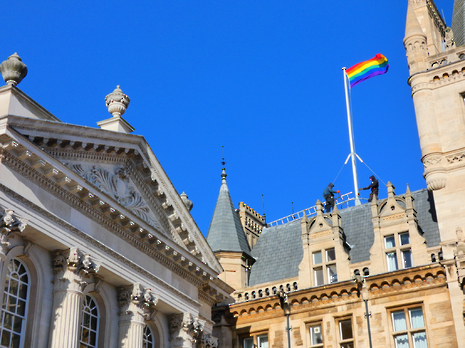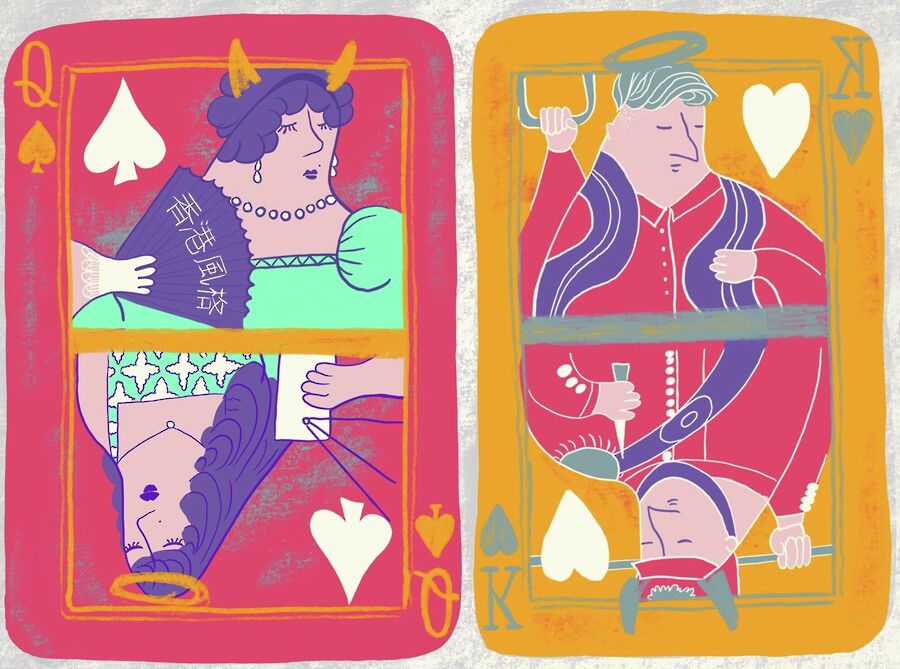
Dear Trinity Hall – why won’t you fly the LGBTQ+ flag?
Edwin Boadu on how the refusal of colleges to fly the flag displays the need for more queer spaces in Cambridge

When I woke up on 1st February 2018 and logged onto my social media, I was greeted with images that celebrated the history of the LGBT+ community. Among these pictures were photos of Cambridge colleges that had proudly chosen to display the flag within their premises. With 27 colleges (13 more colleges compared to the previous year) and the UL, which also flew the flag, a massive and commendable achievement for LGBT rights and visibility has been made. However, four colleges chose not to fly the flag on a flagpole: Trinity, Clare Hall, St John’s and my own college, Trinity Hall.
Colleges choosing not to fly the LGBT+ flag, a flag which is emblematic of my own identity, bewildered me. When I tried to fathom reasons of refusal, the only explanation that I could think is one which relates to homophobia. One of Trinity Hall’s reasons not to display the LGBT+ flag was due to the act representing a ‘political’ statement, and their resulting fear of taking a ‘political position’. But choosing not to fly the flag when other colleges have is to inevitably take a ‘political’ stance – a stance that is suggestive of an institutionalised homophobia deeply embedded within the college’s educational structures. The college’s other reason intersects with their antiquated flag-flying policy that delineates the display of only the College’s own flag and the Union flag (ironic, right?). The college’s compliance with this archaic policy shows that the college prioritises old traditions, instead of raising awareness for those who are socially marginalised.
“But choosing not to fly the flag when other colleges have is to inevitably take a political stance”
My college’s refusal to display the LGBT+ flag stresses the need for queer spaces (spaces that are delegated for the celebration and welfare of members of the LGBT+ community) within Cambridge. Personally, I will celebrate the LGBT+ month by attending a formal (Technicolour) that will take place in Jesus College. Holly Fae Bracewell, the LGBT+ officer at Jesus College and responsible for the organisation of the formal, said that the aim was to “create a safe space within Cambridge tradition for LGBT+ students”. She adds that “our identity as part of the LGBT+ community shouldn’t have to be separate from our lives as Cambridge students. Formals such as these allow LGBT+ students and allies to celebrate the vast array of identities encompassed by the acronym ‘LGBT+’ through an event we wouldn’t have access to outside of the University”. She reflects that “of course, this event should not occur in isolation but, when accompanied by institutional change to promote equality and diversity, they can help make Cambridge feel more like home for our LGBT+ student body”.
Another queer space that showcases the progress of the LGBT+ community and that is highly praiseworthy is FUSE, which seeks to provide safe and intersectional spaces for BME and queer students at Cambridge. Jason Okundaye, the facilitator of FUSE and president of the BME campaign stresses that “a lot of BME LGBT+ people have expressed” a sentiment of alienation “from both the very white LGBT+ community at Cambridge, and the heterosexual/cisnormative cultural societies”. He adds that “there are countless stories about experiences of racism within the Cambridge LGBT+ community or homophobia and transphobia in other spaces”. He states that FUSE “is an important space to allow people to safely express all aspects and overlaps of their identity – if you ever feel lonely being the only black or Asian person in your year at college, imagine being the only black gay person”.
What strikes me the most about these two queer spaces, and many others that I have not mentioned, is their emphasis on intersectionality to ensure that all identities within the LGBT+ community are represented. While their actions operate on a micro level, these acts give way to positive macro impacts for current and future LGBT+ generations. As a whole, the refusal of the four colleges in Cambridge to fly the LGBT+ flag is troubling. While it may be a political statement to fly the LGBT+ flag, it is an innocuous one that would ensure members of the LGBT+ community to feel safe within the University and reduce their sentiment of marginalisation

